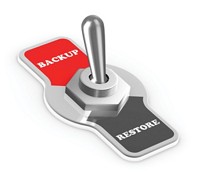Advertisement
Grab your lab coat. Let's get started
Welcome!
Welcome!
Create an account below to get 6 C&EN articles per month, receive newsletters and more - all free.
It seems this is your first time logging in online. Please enter the following information to continue.
As an ACS member you automatically get access to this site. All we need is few more details to create your reading experience.
Not you? Sign in with a different account.
Not you? Sign in with a different account.
ERROR 1
ERROR 1
ERROR 2
ERROR 2
ERROR 2
ERROR 2
ERROR 2
Password and Confirm password must match.
If you have an ACS member number, please enter it here so we can link this account to your membership. (optional)
ERROR 2
ACS values your privacy. By submitting your information, you are gaining access to C&EN and subscribing to our weekly newsletter. We use the information you provide to make your reading experience better, and we will never sell your data to third party members.
Policy
Corralling Big Data
November 23, 2015
| A version of this story appeared in
Volume 93, Issue 46
Nov. 2, page 8: The News of the Week story about plastic particles found in Chinese salt misreported the amounts of plastic found in each type of salt. The researchers found 250 particles of plastic per lb of sea salt as well as between 3 and 165 particles per lb of salts sourced from briny lakes, briny wells, and salt mines.
Oct. 26, page 40: In the Newscripts column, Daniel Kirby was incorrectly identified as working for Harvard Art Museums. He is an analytical chemist and independent conservation scientist.
I sincerely appreciated the article “Dealing with the Data Stampede” (C&EN, Sept. 14, page 23). The author, however, explains just the tip of the iceberg when it comes to the data needs happening across industry.
ACS 2014 IRS Form 990 Available
The American Chemical Society’s 2014 IRS Form 990 is now available on ACS’s website. To access the information, go to www.acs.org and follow these instructions: Click on “About ACS,” and then click on “Financial,” which brings you to the “ACS Financial Information” page. Under the heading “ACS IRS Form 990,” click on “2014 IRS Form 990.”
Please see also the related “Guide to Schedule J” for explanatory information regarding ACS executive compensation. If you have any access problems, contact webmaster@acs.org.
There is a shortage of individuals who have the skills to both know their work processes in the life and chemical sciences as well as the dynamic data needs of their company. The workforce today needs individuals who have industry experience combined with an understanding of basic information technology (IT) infrastructures to assure that their data are being backed up and warehoused properly. While we as scientists may be more tech savvy than we were 10 years ago, we are only savvy in using the technology, not understanding the capabilities and limitations of it.
When your legacy systems and databases are transitioned into the latest database software and user interface, the old data have to be stored somewhere. More important, once stored, data need to be able to be recalled for evidential or historical reconstruction. If you as a scientist know you’re generating and storing data, you need to ensure that, once your data get warehoused, you or someone else can retrieve the data.
You don’t have to have extensive research capabilities or be a certified IT professional, but understanding and leveraging the capabilities of your information systems are of utmost importance to your company and saves extraordinary efforts in retrievability during audits and any other circumstance that you may encounter. Also as scientists, we own the ethical responsibility to pass this skill set to the next generation. We first need to lead by example that we will learn the capabilities of our information systems and pass this in addition to our industry-based scientific knowledge to future generations coming through our doors.
Brandon Matthew Alexander
Newport News, Va.




Join the conversation
Contact the reporter
Submit a Letter to the Editor for publication
Engage with us on Twitter